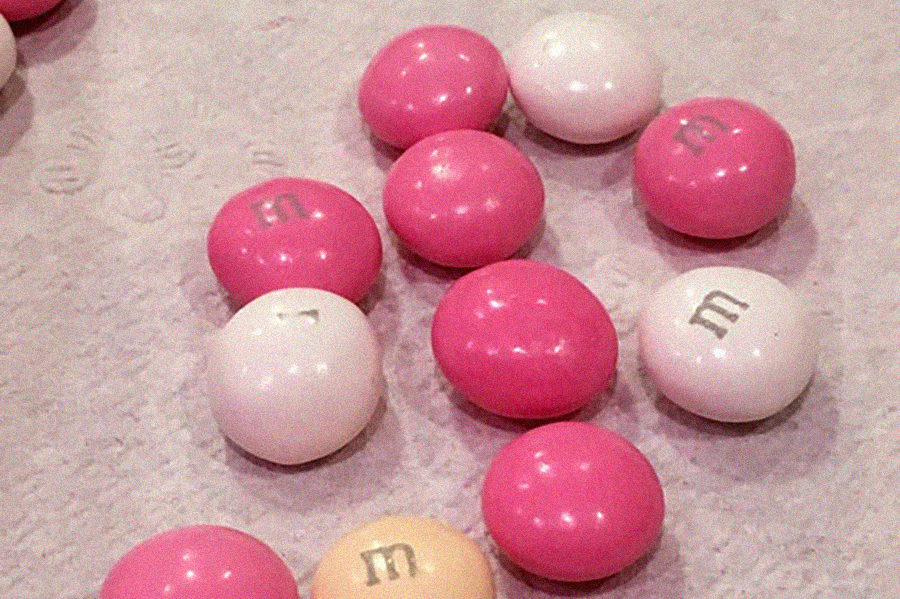How My Jewish Co-op Counted the Omer... with Cheesecake M&Ms

Photo by theimpulsivebuy, Flickr Creative Commons
At the beginning of 2021, I was living through a very strange time in Washington, D.C. The COVID-19 pandemic was still raging. On January 6, I was sent home early from work and watched the horrifying attack on the Capitol play out just a few Metro stops away. By May, D.C. residents were told to expect another apocalyptic event: the emergence of Brood X, a chirruping swarm of cicadas that blankets the region once every seventeen years, reminiscent of a biblical plague.
During this tumultuous time, I was lucky enough to live in a community grounded by deep friendship and a desire for spiritual exploration. As a member of the Avodah Jewish Service Corps, I lived in a Jewish co-op with ten recent college graduates. We were all committed to anti-poverty and social justice work, plus building pluralistic Jewish communities.
Constructing our own pluralistic household could be challenging because we came from diverse Jewish backgrounds. We had housemates who did not drive, cook food, or spend money on Shabbat. We had housemates who watched The Bachelor on Friday nights and ordered pork dumplings for dinner. We had a special “kosher caucus” responsible for keeping track of the ritual status of our kitchenware. (I once received a text that simply read “non-kosher sponge alert!” with flashing red siren emojis.) We taught each other the prayers, songs, and recipes that signified Jewishness in our families and home communities. My favorite part of living in this Jewish co-op was the openness to both honoring and experimenting with our traditions.


So in the spring of 2021, I was excited to engage in a Jewish practice that was new to me with my housemates’ support: counting the omer. The omer refers to the forty-nine-day period between the beginning of Passover and the holiday Shavuot, which commemorates the giving of the Torah on Mt. Sinai. The Hebrew word omer literally means “sheaf” of grain. In the ancient world, this time period was associated with the barley harvest and grain sacrifices at the Temple. Rabbinic Judaism retained the practice of reciting a special omer prayer for forty-nine days. Counting the omer reminds us of the time it takes to move from oppression to liberation, Egypt to Sinai.
Some of my housemates grew up counting the omer every year, but my Reform Jewish family had never done so. My housemates and I created a poster with the omer blessing written in Hebrew, English, and transliteration. We were determined to say the blessing every night after dinner for seven weeks.
And then something unexpected happened.
As we began to count the omer, we received an odd grocery item in our Instacart order. Instead of the large bag of M&Ms we had requested—a little treat to get our remote workers through the day—the typical chocolate M&Ms had been replaced with an alternative: white chocolate, cheesecake-flavored M&Ms. I’m pretty sure they were unsold merchandise left over from Valentine’s Day, and it was clear why. When we cracked open the bag curiously, we found the cheesecake M&Ms were… disgusting. They were dense and cloying with a chemical aftertaste. And we had a gigantic bag of them, taunting us from the kitchen table.
Then my housemate Charlie had an idea. In the evening, when we gathered to count the omer, Charlie placed a cheesecake M&M in each of our hands. We laughed and made jokes about how Shavuot, the holiday we were counting toward, is associated with dairy foods in Ashkenazi communities. In fact, many Jews make cheese blintzes or even cheesecake to celebrate the holiday! So, when we counted the omer, we choked the gross M&Ms down.
Somehow, this tongue-in-cheek ritual of eating a cheesecake M&M after we said the omer blessing deepened and enriched my practice. The gargantuan bag on the kitchen table reminded us to say our nightly prayer. It injected a note of humor and modernity into a rote recitation of Hebrew. Could my ancestors have ever imagined that I would mark the time between Passover and Shavuot by eating a chocolate candy, trying and failing to taste like cheesecake? Probably not. But would they be proud that I was thinking about the omer for the first time in my life, reflecting on the distance between exodus and revelation, as the metallic aftertaste hit my tongue? I hoped so.
In the spring of 2021, my housemates and I counted the omer all the way to forty-nine days—and we finished the bag of M&Ms along the way. The experience will always remind me of the messiness, playfulness, and beauty of co-created ritual. What we taste, cook, and create together opens new horizons in spiritual life and has the power to transform and reinvigorate traditional practices.
Francesca Rubinson is a student at Harvard Divinity School, pursuing a Master of Divinity, an Avodah Jewish Service Corps member alumna, and a Tufts University graduate with degrees in political science and religion. She is enterested in Jewish studies, interfaith chaplaincy, and intersections of faith communities and social justice work.

